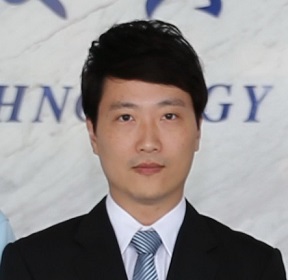
Chi Tang Tu
National Taiwan University, Taiwan TaiwanTitle: Stem Cells Applications in Regenerative Medicine
Abstract:
Regenerative medicine is an important vanguard of the biomedical industries, and all countries urge to put in lots of resources in research and development. Taiwan Mitochondrion Applied Technology Co., Ltd (TaiMito) is an emerging leader in the worldwide development of regenerative medicine on mitochondrial technology. TaiMito focused on mitochondrial R&D and application technology platforms since 2014 and is the first company that develops mitochondria as biologics through Mitochondrial Reconstruction Technology (MRT). The population of aging around the world is increasing dramatically. Mitochondrial dysfunction is closely associated with the development of aging and degenerative diseases (such as Parkinson's disease and Alzheimer's disease... etc.). Because impaired mitochondria will be insufficient to energy supply and trigger reactive oxygen species induction, and even result in cells to enter apoptosis or autophagy, which will lead to disease. Currently, a number of product pipelines have been developing, including MitoCell (stem cells), MitoBio (Mitochondria), MAKcell (immune cells), MitoScan (functional mitochondria assay), and Stemoto (stem cell culturing medium). MitoCell, MitoBio, MAKCell are preparing to enter the next stage of a clinical study, and other products or testing services are marketed in the fields of preventive healthcare supplements, aesthetic medicine, stem cell culture medium, health examination, and mitochondrial metabolomics. These products or services have been demonstrated to be safe, and effective in preliminary studies. Our major priority is to launch the MitoCell to targeted markets. MitoCell is an autologous stem cell product that cultures with the company's unique patented medium. The mechanism of action (MOA) of MitoCell is to improve the brain microenvironment in neurodegenerative disease. MitoCell which like mesenchymal stem cells can modulate the immune response. Moreover, MitoCell can secrete more abundant regulators, such as BDNF/GDNF, SDF-1, IL-1ra, BECN-1...etc., to help dopamine neurons (DA) repair, restore, and regenerate, and even eliminate toxic α-Synuclein through up-regulating autophagy. Therefore, MitoCell can reconstruct the brain environment to a better site for DA residents and showed more efficacy than other stem cells. In our study, BDNF is one of the major potency markers of MitoCell. We have successfully initiated MitoCell to phase I open-label dose-escalation study to evaluate the safety, tolerability, and efficacy of autologous MitoCell intracranial transplantation in subjects with idiopathic Parkinson’s disease which rating from stage 3 ~ 4 of modified Hoehn & Yahr staging. Two dose levels will be tested. This clinical trial plans to enroll approximately 4 subjects to obtain 3 evaluable subjects successfully receiving 3×107 cells/hemisphere (total 6×107 cells, Cohort 1) and approximately 8 subjects to obtain 6 evaluable subjects for 1×108 cells/hemisphere (total 2×108 cells, Cohort 2). The primary objective of this study is to assess the safety profile of autologous MitoCell administered to PD patients, and the secondary objective is to explore the efficacy and safety of MitoCell given as the recommended dose by stereotactic intrastriatal implantation.
It was clear that none of the current treatments can rescue the degeneration of the brain function in PD patients and eventually the patients will inevitably become disabled. However, MitoCell therapy may provide a potential solution. The following potential benefits are expected within one year:
- - Improvement in motor function: shall be reflected on reduction of UPDRS motor score by 20~40%.
- - Reduction of PD medication: shall be reflected on LEDD and without the side effect of graft-induced dyskinesia.
- - Better quality of life: shall be reflected on the PDQ-39 scale.
It is also possible that subjects may benefit more than one year if MitoCell manages to survive longer or change the microenvironment/inflammation status of the lesion site for the long term to prevent progression of neuron degeneration.
Biography:
Chi Tang Tu graduated from National Taiwan University with a major in Molecular and Cellular Biology. During his postdoctoral research in the Surgery Department of National Taiwan University Hospital, he is specialized in the studies of adipose-derived stem cells and amnion stem cells for the disease of liver fibrosis/cirrhosis. Chi Tang Tu has his expertise in stem cells, mitochondria, CIK, and NK cells CMC-related activities, including development and manufacturing of drug substance, drug product, new chemically defined stem cell culturing, and conditioned medium, to support preclinical development through supplies for clinical phases. Many years experience of in managing and establishing GTP and PIC/S GMP facilities compliance with GLP, GTP, and PIC/S GMP. Furthermore, he led an intensive R&D team in the development of the isolation, scale-up, and cryopreservation process of mitochondria products (biologics) for augmenting therapy of neurodegenerative diseases and age-related infertility. His RD team built an innovative mitochondria functional analysis platform to assess cell drugs quality and to apply in blood BHI (bioenergetic health index) assay for preventive medicine. At the company, Chi Tang Tu also supports business and strategy development, patent deployment, engagement, and negotiation with venture capital or clients, and is in charge of translating our RD works from bench to bedside to business.
